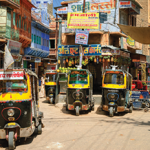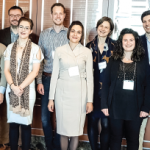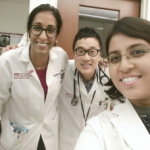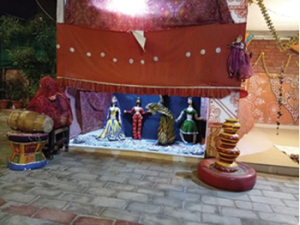
Dr. Bhatt and the rheumatology fellows were treated to a local puppet show at his farewell dinner.
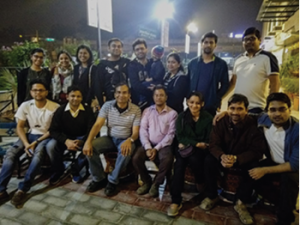
The Sanjay Gandhi Postgraduate Institute of Medical Sciences rheumatology fellows, Dr. Bhatt (front row in the striped shirt), as well as Professor of Clinical Immunology and Rheumatology Able Lawrence, MBBS, MD, DM, and Latika Gupta, MBBS, MD, DM, the ACR/IRA exchange fellow from India to the U.S.
India has a very good patient-support program for certain biologics. Nurses make home visits and fax records to the primary care doctor or the rheumatologist at different time points.
